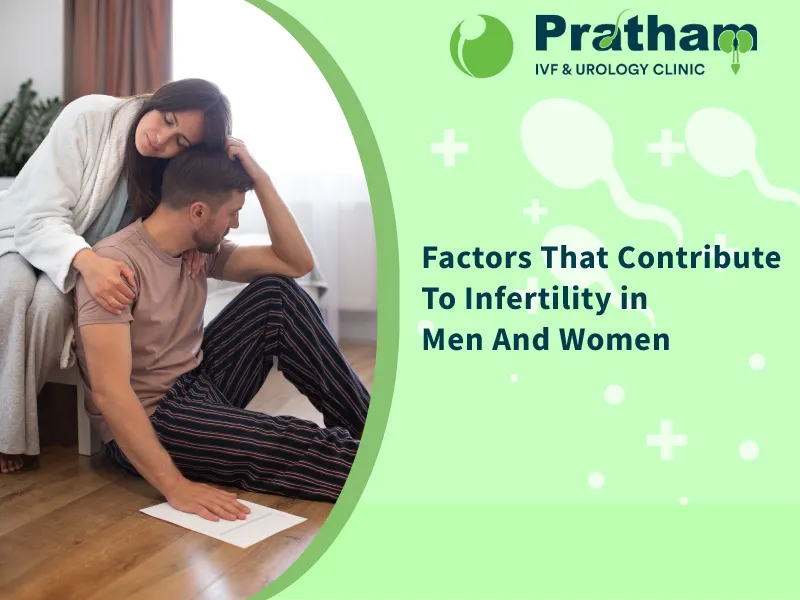
Understanding Male and Female Infertility: Key Factors to Know
Infertility can be a challenging journey for many, but understanding its causes is the first step in finding solutions. Infertility doesn’t just affect women – men can face fertility challenges too. Let's break down the key factors that contribute to infertility in both men and women, making it easier to understand.
Female Infertility: What You Should Know
- Ovulation Problems: For conception to happen, ovulation (the release of an egg from the ovary) must occur regularly. Conditions like polycystic ovary syndrome (PCOS) or hormone imbalances can mess with this natural cycle, making it harder to conceive.
- Blocked or Damaged Fallopian Tubes: The fallopian tubes are where the sperm meets the egg. If these tubes are blocked or damaged due to conditions like pelvic inflammatory disease (PID) or endometriosis, it can prevent pregnancy.
- Uterine Issues: Problems inside the uterus, such as fibroids or polyps, can make it difficult for an embryo to implant or grow.
- Age Matters: As women get older, fertility naturally declines, especially after 35. The number and quality of eggs decrease, which can make getting pregnant more challenging.
Male Infertility: What You Should Know
- Low Sperm Count or Poor Quality: Male infertility often stems from problems with sperm count, motility (how well sperm swim), or morphology (shape). These issues can make it harder for sperm to reach and fertilize the egg.
- Varicocele: A varicocele is an enlargement of the veins within the scrotum, which can raise the temperature around the testicles and affect sperm production.
- Hormonal Imbalances: Hormones play a key role in sperm production. When there's an imbalance, sperm count, or quality may suffer.
- Testicular Damage: Previous injuries, surgeries, or genetic factors that affect the testicles can lead to fertility issues.
- Lifestyle Factors: Certain habits can affect sperm quality. Smoking, drinking, drug use, being overweight, or exposure to harmful chemicals can all lower fertility.
- Ejaculation Problems: Issues with ejaculation or blockages in the reproductive tract can prevent sperm from reaching the egg.
Common Factors That Affect Both Men and Women
- Lifestyle and Environmental Stressors: Things like poor diet, high stress, being overweight, or exposure to toxins can negatively impact fertility for both men and women.
- Sexual Dysfunction: Challenges with sexual function can make conception difficult, whether it’s trouble with arousal, intercourse, or other issues.
- Genetics: In some cases, genetic conditions can contribute to infertility for both men and women, which is why genetic testing may sometimes be recommended.
 Ahmedabad Top Rated IVF Center
Ahmedabad Top Rated IVF Center




